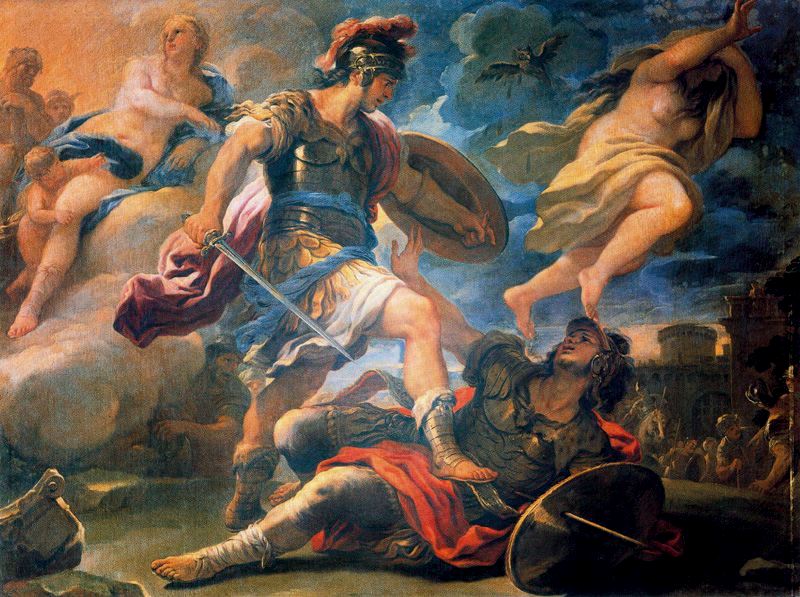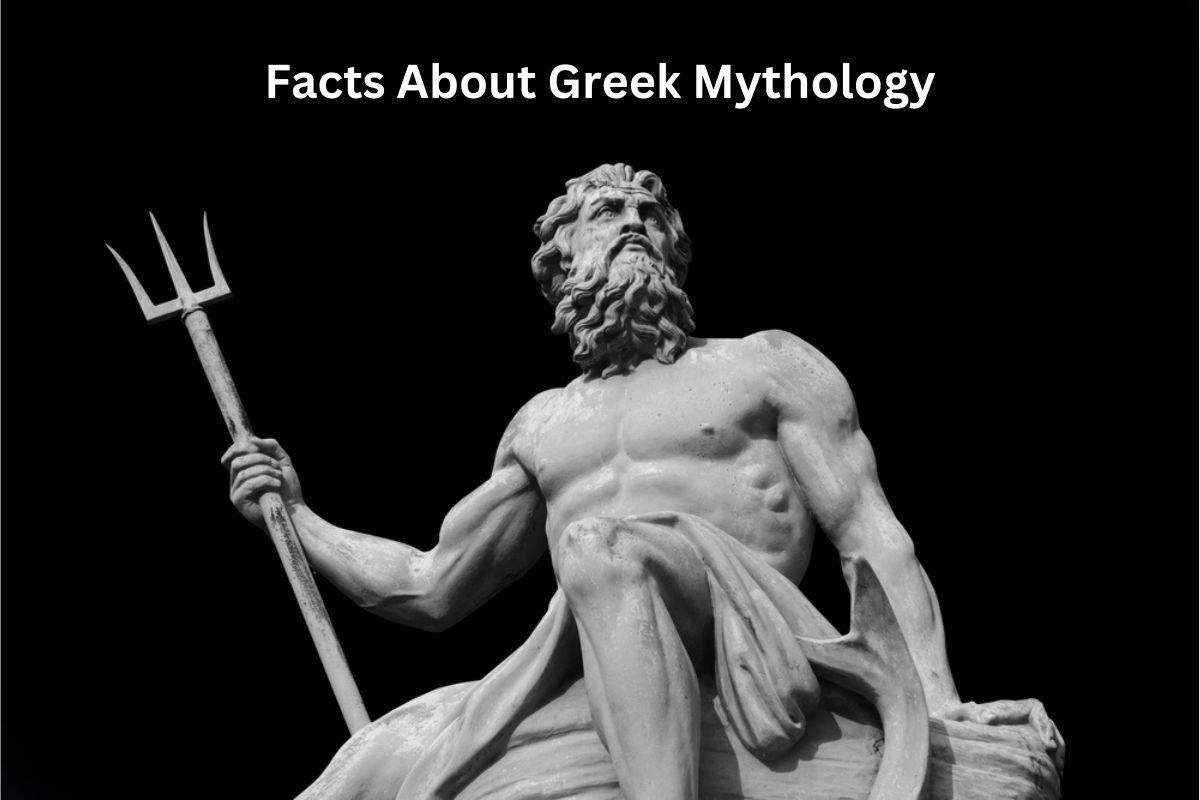Greek mythology is a captivating collection of stories and legends that originated in ancient Greece. It encompasses a rich tapestry of beliefs, gods, goddesses, heroes, and mythical creatures, offering insights into the ancient Greeks’ understanding of the world.
The myths delve into various aspects of life, explaining natural phenomena, religious practices, and human experiences.
From the powerful Olympian gods and their epic battles to tragic love stories and encounters with fearsome creatures, Greek mythology continues to captivate audiences today.
Its influence can be seen in Western literature, art, and culture, where these ancient tales have been retold and reimagined over centuries, leaving an indelible mark on our collective imagination.
Greek Mythology Facts
1. Greek mythology consists of stories and legends from ancient Greece
These myths were an integral part of the ancient Greek culture and served to explain natural phenomena, religious beliefs, and human experiences.
Also Read: Facts About the Odyssey
Greek mythology includes a vast collection of narratives about gods, goddesses, heroes, and mythical creatures, offering insights into the ancient Greeks’ understanding of the world around them.
2. The twelve Olympian gods and goddesses were the most important deities
They resided on Mount Olympus, the highest mountain in Greece. The Olympian gods formed a pantheon headed by Zeus, the king of the gods. Each deity had their specific domains and powers.
Also Read: Greek Gods Facts
For example, Zeus was associated with thunder and the sky, Poseidon ruled the sea, and Athena was the goddess of wisdom and warfare. These gods and goddesses were central figures in Greek religious practices, and temples were built in their honor throughout the ancient Greek world.
3. The Trojan War, chronicled in the Iliad, is a famous event in Greek mythology
The Trojan War, chronicled in the epic poem called the Iliad by the ancient Greek poet Homer, is a famous event in Greek mythology.
Also Read: Greek Mythology Timeline
It was fought between the Greeks (led by Agamemnon, Menelaus, and Achilles) and the Trojans (led by King Priam and Prince Hector) around the 12th or 13th century BCE.

The war began after Paris, a Trojan prince, abducted Helen, the wife of Menelaus, the king of Sparta. The conflict lasted for ten years and involved various heroes, such as Achilles, Odysseus, and Hector.
The story of the Trojan War has captivated audiences for centuries and is regarded as one of the most significant events in Greek mythology, symbolizing heroism, fate, and the complexities of war.
4. Medusa, with snakes for hair, could turn people to stone
In Greek mythology, Medusa was one of the three Gorgon sisters, monstrous creatures with wings and snakes for hair. Anyone who looked directly into Medusa’s eyes would be turned to stone. Perseus, a hero in Greek mythology, was tasked with slaying Medusa as part of his quest.
With the help of the gods, Perseus successfully beheaded Medusa while using a mirrored shield to avoid her gaze. The severed head of Medusa retained its power, even in death, and was later used as a weapon against enemies.
5. Heracles had to complete twelve labors as punishment for his deeds
These labors were assigned by King Eurystheus and were considered nearly impossible tasks. The twelve labors of Hercules included slaying the Nemean Lion, capturing the Golden Hind, defeating the nine-headed Hydra, and cleaning the Augean stables, which had not been cleaned for years.
Each labor tested Heracles’ strength, courage, and wit. Through his successful completion of these labors, Heracles attained immortality and became one of the most celebrated heroes in Greek mythology.
6. Pandora’s Box released all the evils into the world
According to Greek mythology, Pandora was the first woman created by the gods as a punishment for Prometheus, who had stolen fire from the gods and given it to humans.
Pandora was given a box (or a jar) as a gift but was explicitly told not to open it. However, curiosity got the better of her, and she opened the box, unleashing all the evils and plagues of the world, such as sickness, greed, and envy.
Only hope remained trapped inside the box, offering humanity a glimpse of comfort amidst the hardships of life. The story of Pandora’s Box serves as a cautionary tale about the consequences of curiosity and the presence of both good and evil in the world.
7. Greek mythology features various mythical creatures like the Minotaur and Cyclopes
The Minotaur was a fearsome creature with the head of a bull and the body of a man. It dwelled in the labyrinth of Crete and was eventually slain by the hero Theseus. The Cyclopes were one-eyed giants known for their incredible strength.
They were associated with different aspects of Greek mythology, such as forging Zeus’ thunderbolts and being encountered by Odysseus during his journey in Homer’s Odyssey. These mythical creatures added a sense of wonder and danger to the stories of Greek mythology.

8. Orpheus and Eurydice is a tragic love story from Greek mythology
Orpheus was a gifted musician, and Eurydice was his beloved wife. When Eurydice died from a snake bite, Orpheus was grief-stricken and traveled to the underworld to retrieve her.
With his enchanting music, Orpheus convinced Hades, the ruler of the underworld, and Persephone, Hades’ wife, to allow Eurydice to return to the land of the living.
However, there was one condition: Orpheus must not look back at Eurydice until they reached the world above. In a moment of doubt and longing, Orpheus glanced back, losing Eurydice forever. This tale explores themes of love, loss, and the fragility of human existence.
9. Greek mythology has influenced Western literature, art, and culture
The myths and characters from ancient Greece have served as a rich source of inspiration for countless works of literature, plays, poetry, and artwork throughout history.
From Shakespeare’s “A Midsummer Night’s Dream” to the paintings of Botticelli’s “The Birth of Venus,” Greek mythology has left an indelible mark on Western creative expression.
The themes, archetypes, and moral lessons found in these myths continue to resonate with audiences and provide a foundation for storytelling in modern times.
10. Many Greek myths and characters have been retold and reimagined over time
The enduring appeal of Greek mythology has led to its reinterpretation in various forms. Numerous novels, films, and television shows have been inspired by Greek myths, offering fresh perspectives and adaptations of these timeless tales.
Examples include movies like “Clash of the Titans” and “Percy Jackson & The Olympians,” as well as the popular video game series “God of War.” The continued retelling and reimagining of Greek myths showcase their enduring relevance and the enduring fascination people have with the world of ancient Greece.
